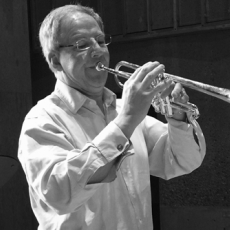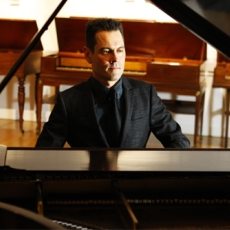Romantic Trumpet Sonatas - Jonathan Freeman-Attwood - International Record Review
Don't believe everything you read: of the four ‘Romantic Trumpet Sonatas' claimed by the front cover, only one really is - the 1935 work be the Austrian composer Karl Pilss. The three that precede it on this CD have been press-ganged into trumpet-sonata-ness but come off surprisingly well. In Daniel Pienaar's arrangement the nervous string figurations of the Holberg Suite transfer idiomatically to the trumpet, and the replacement of the violin line in the Schumann and the cello line in the Mendelssohn brings a degree of textural clarity missing in the originals, simply because of the inability of the trumpet to blend with the piano part in any part of its register. One might expect the long lines of the slow movements to speck trouble for a trumpeter, but Jonathan Freeman-Attwood has the lungs and the lips to cope with such improbably demands.
Pilss (1902 - 79) was a pupil of Franz Schmidt and something of a Renaissance figure in the Vienna of the 1930s onwards: not only a composer, he was also a teacher, répétiteur, chorus master and painter. This sonata is his only work to have made any headway in its particular repertoire; the Berlin Philharmonic Wind Quintet included a Serenade by him on a BIS CD it released in 1994, indicative of his fondness for writing for wind instruments (at one point he was composer-in-residence of the Trompetenchor der Stadt Wien). The thing that's immediately obvious about this work originally conceived for the trumpet is that the solo line can, well, breathe, and the writing is spacious and flowing; in the three transcriptions the trumpet is sent through virtuosic hoops just articulating the notes. The piece is fluent and well made, with confident melodic writing, but though it sounds more natural, it doesn't have the personality of the three interlopers.
Freeman-Attwood and Pienaar deliver all four pieces with tremendous panache - above all, they communicate a sense of fun - and the Linn surround-sound recording is a model of clarity and warmth. Freeman-Attwood's day job is as Principal of the Royal Academy of Music and so he was the obvious man to call in to write the booklet notes, where he helpfully walks us through the challenges of the transcriptions from the player's point of view. The listener can simply sit back and enjoy it all.


